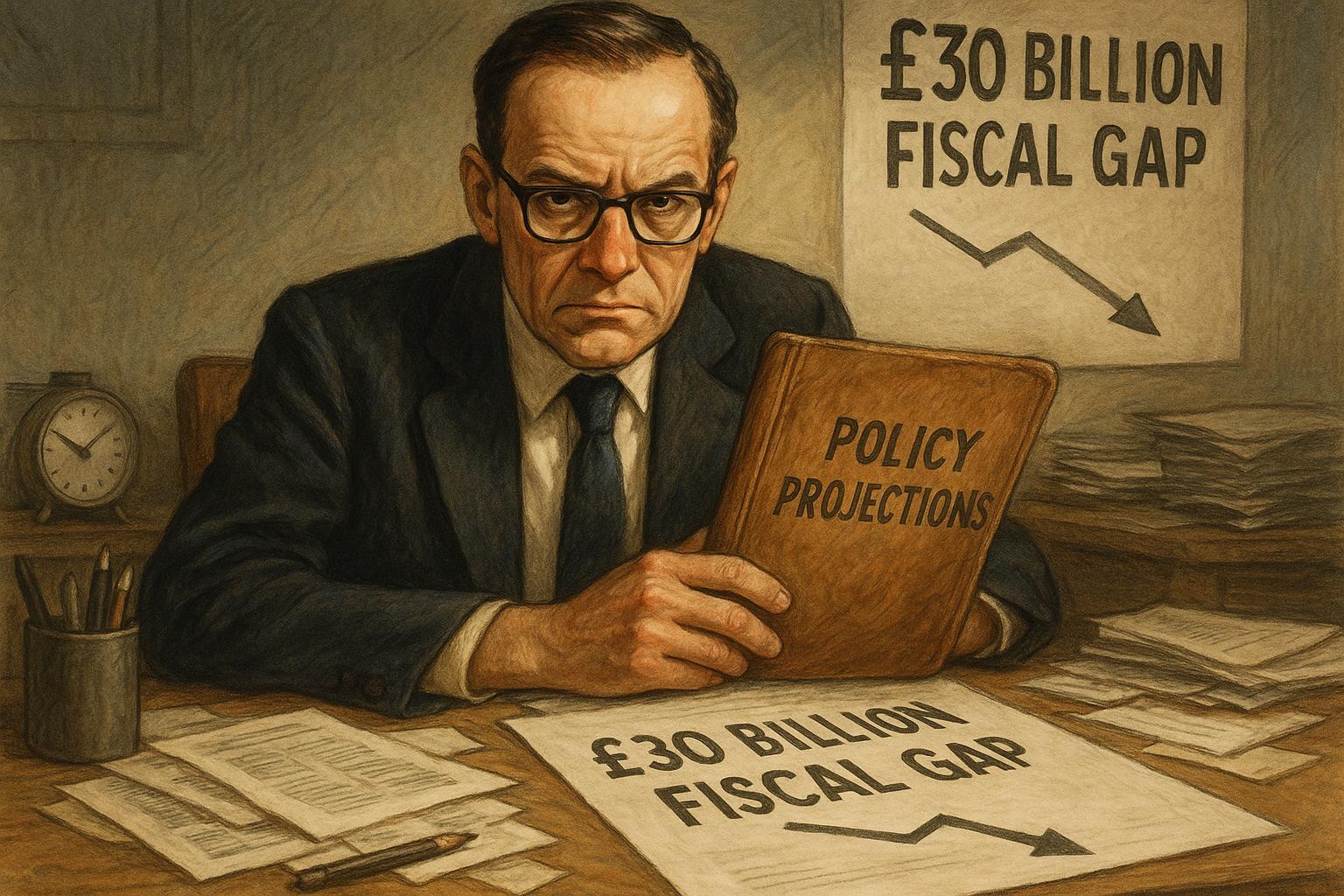Rachel Reeves, the UK Chancellor, is reportedly contemplating a controversial increase in income tax, a move that would mark the first rise in the main rate since the 1970s. This consideration comes amid efforts to address a significant budget deficit currently estimated at around £30 billion, resulting from weaker-than-expected economic growth and the reversal of previous welfare reforms. According to reports, one of the potential measures under discussion is a 1p increase on the main income tax rate, which could generate roughly £8 billion in additional revenue. This potential policy shift represents a departure from Labour’s manifesto commitment, which explicitly promised not to raise income tax, National Insurance, or VAT on working people.
Labour’s manifesto has been clear in its pledge to protect "working people" from tax increases, aiming instead to focus tax hikes on wealthier individuals. Chancellor Reeves has previously indicated that those with the "broadest shoulders" should bear more of the tax burden to ensure fairness. However, economic advisors and some Treasury officials have expressed concerns that the smaller, targeted tax measures initially preferred by Labour will be insufficient to manage the fiscal gap effectively. Some within the Treasury and Downing Street reportedly believe that increasing payroll taxes might be the only viable option to uphold what Reeves has termed "iron-clad" fiscal rules. This view comes amid growing unease that sticking rigidly to the manifesto's no-income-tax-rise pledge could constrain effective economic management.
Political repercussions are a major consideration in this debate. Reeves is reportedly concerned that breaking the manifesto pledge could expose Labour to harsh criticism from the Conservatives and Reform UK, who might portray the party as reneging on promises and unfairly targeting working people. The move could also complicate Labour's electoral standing, especially with Reform UK holding a strong lead in opinion polls and expected to capture a significant share of Labour’s vote in the upcoming May local elections. Nonetheless, some officials believe that a one-off tax increase could help Labour avoid a series of future tax hikes during the parliamentary term, potentially restoring some public trust ahead of the next general election.
Labour’s fiscal challenges have been attributed by government sources to a combination of external economic shocks, including the impact of Donald Trump's tariffs, the ongoing conflicts in Ukraine and Gaza, and the economic ramifications of Brexit. In response to these pressures, Reeves has reportedly decided to increase fiscal "headroom" in the forthcoming Budget, providing greater flexibility to absorb unexpected spending demands. This move, while prudent, could make it more likely that measures like an income tax increase might be necessary if budgetary pressures intensify.
Despite these brewing considerations, Treasury officials have maintained publicly that Labour’s manifesto tax pledge "stands" until any formal Budget announcements are made. Some caution has been expressed regarding the final decisions pending evaluations by the Office for Budget Responsibility, which continues to assess governmental policies as part of its fiscal scoring. The debate remains active and unresolved as the November Budget approaches, with significant attention focused on balancing political commitments against economic realities.
Adding further complexity to the revenue-raising strategy, recent analyses suggest that Labour is also considering increases in employer National Insurance contributions, a move some view as potentially conflicting with the party’s manifesto promises. Moreover, broader economic reforms announced by Labour, such as scrapping the non-dom tax status, introducing VAT on private school fees, and levying windfall taxes on energy companies, form part of a wider agenda to fund public services and infrastructure but may not fully address the immediate fiscal shortfall.
Economic think tanks, including the Institute for Government and the Institute for Fiscal Studies (IFS), have weighed in with recommendations that Reeves should consider comprehensive tax reforms. The IFS, for example, advises that raising existing tax rates indiscriminately may harm economic growth and advocates instead for targeted reforms, particularly in wealth and property taxation. These expert views underscore the complexity of balancing equity, economic growth, and fiscal responsibility in the upcoming Budget.
In contrast, Labour officials, including Reeves herself, have at times reaffirmed commitments to avoid further tax increases beyond those already announced. This ongoing tension between economic necessity and political promises makes the forthcoming Budget a critical moment for both the Government and the Labour Party’s standing with voters.
📌 Reference Map:
- Paragraph 1 – [1] (Express), [2] (Express)
- Paragraph 2 – [1] (Express), [3] (Independent), [7] (Reuters)
- Paragraph 3 – [1] (Express), [2] (Express)
- Paragraph 4 – [1] (Express), [2] (Express)
- Paragraph 5 – [1] (Express), [2] (Express)
- Paragraph 6 – [1] (Express)
- Paragraph 7 – [1] (Express), [4] (Evening Standard), [5] (CNBC)
- Paragraph 8 – [3] (Independent), [7] (Reuters)
- Paragraph 9 – [6] (ITV), [1] (Express)
Source: Noah Wire Services
